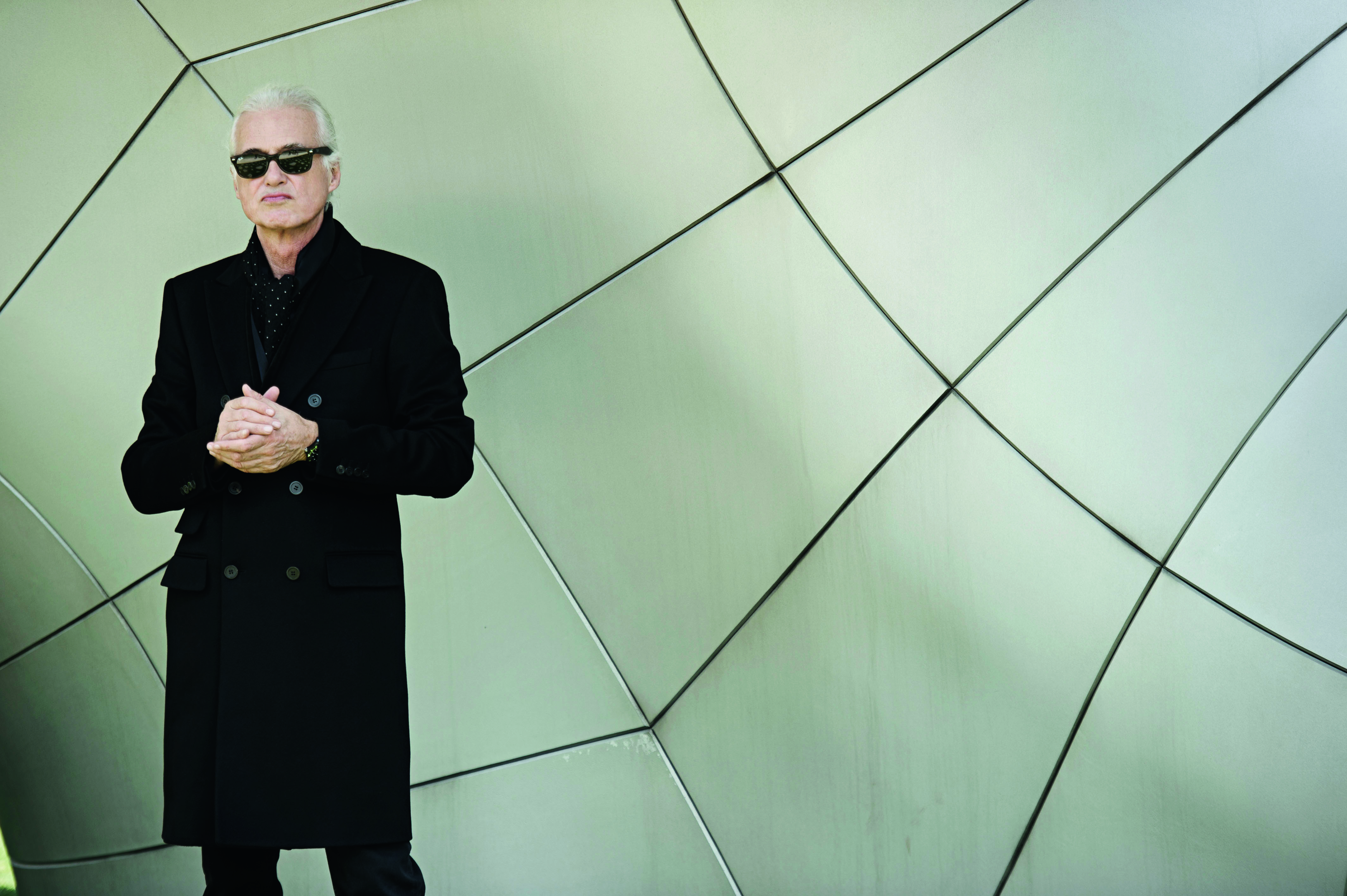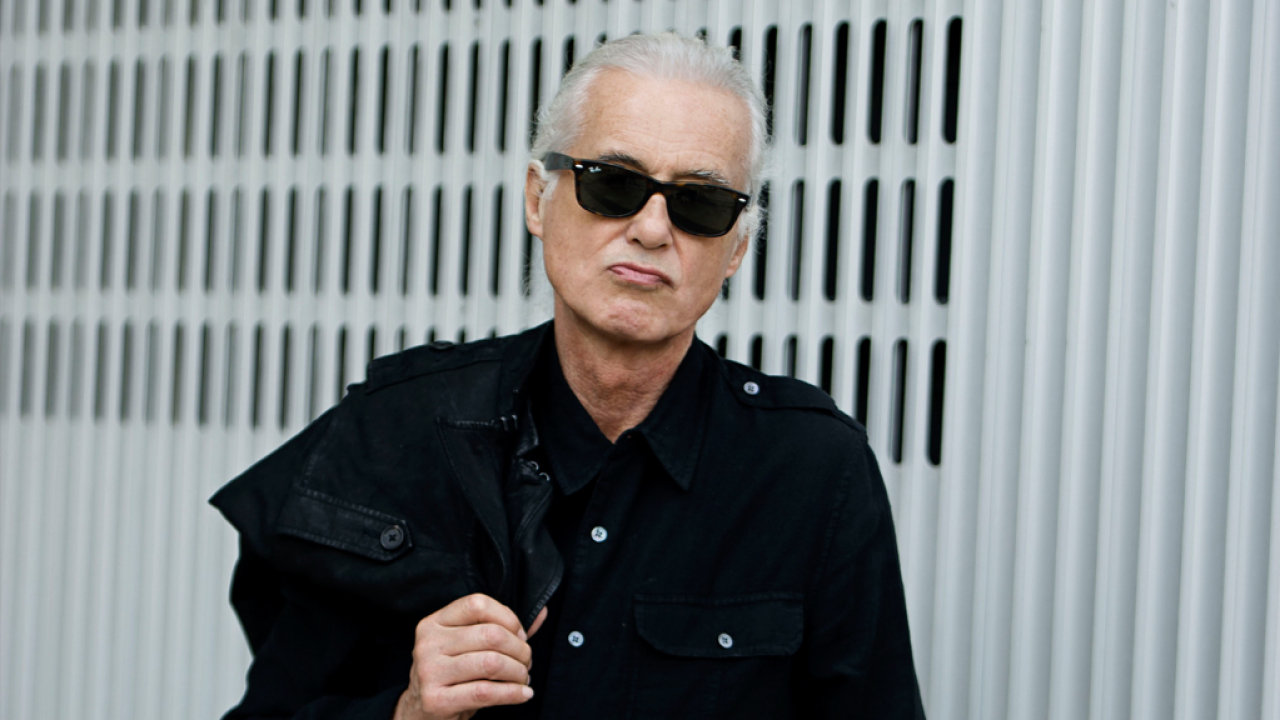You were a schoolboy when the golden age of rock’n’roll happened in the fifties. Who were your heroes?
When I was about twelve or thirteen, I heard Little Richard and Elvis Presley, Jerry Lee Lewis and The Rock And Roll Trio. It was all really intoxicating – the rock’n’roll of Little Richard and the rockabilly hybrid of Elvis. I’m not the first one to say that hearing Little Richard was like, wow!
What was it about Little Richard that blew your mind?
His records were just so primeval compared to everything else that you heard. It was really wild, you know?
Was there any British music that had the same effect on you back then?
I liked Lonnie Donegan and all the skiffle stuff. Cumberland Gap [Donegan’s 1957 hit] was a big influence. As a guitarist, you were trying to learn from these things.
At that time it was happening, were you old enough to understand the cultural impact of rock’n’roll?
Oh yeah. The whole movement was about youth – it was a statement. The musical landscape was fascinating, with all these different characters presenting their own take on what was going on at the time. There was so much urgency conveyed in rock’n’roll. Young people were really drawn to it and I was no exception.
Did you notice the effect that this music had on girls?
In so much as they started to dance to it, yeah [laughs].
And as you hit teen age, you dug back into the roots of rock’n’roll to discover other forms of music such as blues?
That’s exactly how it works. You were listening to Presley and Little Richard and you’d go, ‘Who is Sleepy John Estes? Who is Arthur ‘Big Boy’ Crudup?’. You channelled the roots of other artists. With Elvis it was early country blues.
You ended up meeting Elvis in 1974 when you and Zeppelin singer Robert Plant and drummer John Bonham attended an Elvis concert at the Los Angeles Forum. By then, Led Zeppelin were the biggest band in the world, but Elvis was The King Of Rock’N’Roll. Were you nervous about meeting him?
Oh yeah. This is a man who really was the lynchpin of it all. And by the time I met him, I fully understood how one element of what he did – incorporating black music – had really come right under the radar, which was very cool.
Do you remember anything of your conversation with Elvis?
Yeah, we talked about various things relative to his early days. I remember we were talking to him about Ral Donner, who was an Elvis imitator in the sixties.
It’s reported that Elvis said to his band during the Forum show: “Wait a minute fellas… we’ve got Led Zeppelin out there. Let’s try to look like we know what we’re doing, whether we do or not.”
I don’t remember. Maybe we weren’t there that night.
Is this another of those urban myths about Led Zeppelin?
I think it is. I think Elvis knew how good he was. He would have just got on with it. He knew he had a great band.
The Zeppelin song Rock And Roll – was that a throwback to the music you loved in the fifties?
Certainly in the riff of that song, I can see the correlation between that and Little Richard and the brass section he had. No doubt about it.
Do you remember how you wrote that song?
We were having fun. I think we were doing another number and Bonzo [John Bonham] happened to play the intro of Keep A-Knockin’ [a twenties song popularised by Little Richard]. As he played, I started doing the riff that became Rock And Roll. I said: “Let’s work on this.” It was something that came really quick. I hate to use the word ‘organic’, but shall we say it was spontaneous? It was very direct.
Did you sense that you had to get the lightning in the bottle right there and then or you’d have lost it?
Yeah. We still worked on the arrangement of the song, but it was all based on the one thing that sparked it off, which was the guitar riff. It’s not like a Little Richard song, but it has the vibe and groove of that genre. Of course, we all loved that old rock’n’roll. John Bonham said: “Let’s just have fun.” It is infectious and you can tell that.

There are some great photos of Bonzo around 1973 where he’s dressed like a fifties rocker, with the Teddy boy drape jacket and brothel-creepers.
That was a few years after we did the Rock And Roll track at Headley Grange. He just turned up with the drape jacket and everything – it was cool. It was a great fashion statement – very retro for that time.
To your mind, which other Zeppelin songs come from the same place as Rock And Roll?
I’d say Candy Store Rock leant to Scotty Moore [Elvis Presley’s guitar player].
What about Hot Dog from In Through The Door? That one has a real old-fashioned rock’n’roll feel, with Robert sounding like Elvis.
Hot Dog was a tongue-in-cheek number, although nobody thought it was. The whole song is very tongue-in-cheek.
That sense of fun in Led Zeppelin – is that something that has been forgotten over the years?
I think so. Every now and again there was some humour, and Hot Dog was one example. The rest of it was deadly serious [laughs].
Keith Richards says that the rock is nothing without the roll.
That’s cool.
Did Zeppelin have that sensibility, like the Stones?
It was definitely relative to our roots. We’d come through from the rock’n’roll roots with Elvis and on and on and on. There was a real accent on the blues, except that we tried to make the sound bigger than what had come before.
You’ve been working for years on the new remastered Zeppelin catalogue – going through the archives to find previously unreleased material for the ‘companion’ discs to each album. Have you been surprised at some of the things you’ve found?
I knew what I was looking for. I knew what I was hoping to hear. And pretty much all of that stuff turned up. Obviously there were things that I hadn’t heard really since more-or-less back in the day. But my memory recall was surprisingly good. The minute something would start, I knew what it was. I knew what phase it was at, where it was in the strata of things. You couldn’t remember every single note, but for me, I was quite surprised how much I did remember of it all. But it was a trawl. I had to pull everything in, from whatever source it was from, just to have a complete picture of what there was to be able to consider for the companion discs.
What is the best track you’ve unearthed?
For me it’s the version of Since I’ve Been Loving You [on Led Zeppelin III]. I knew that it existed, but to hear it afresh after all of those years was wonderful. The performance from everybody was just magnificent.
Did you find anything whereyou thought: Shit, this is awful?
Well, I wouldn’t tell you if I did. If anything was awful, that was probably more of my solo stuff [laughs].
Listening back to all this music recorded so long ago, what kind of emotions did this stir in you?
To be honest with you, it was really exciting. It was great to hear everybody playing. It was great to hear Bonzo and his wonderful, positive approach to playing. Brilliant. It was really an uplifting experience – nothing but.
And what does the future hold for you? Recently you said that you want to put a new band together and play live.
I think that’s what’s on the cards for me next, but it won’t materialise until next year.
You’ve also been quoted as saying you have a lot of new music written on acoustic guitar.
I didn’t actually say that. I might have said that I had some new music. That’s as far as I’ll go with that. But I have a number of new pieces – not just one song or whatever [laughs].
You’re keen to get out on the road and play this new music?
I’ll be playing everything.
Are you reluctant to say too much because everything you do say always leads to rumour and speculation?
Absolutely. I don’t see any point in doing that. I’m not going to say what I’m going to do, because I’m not doing it yet. I’d rather it just manifested – that’s the best way to put it, really. But I really want to put these new pieces together and get a band together. That’s what I’m working towards.
You sound excited about it.
Oh yeah. Musically I want to flex my muscles again.

